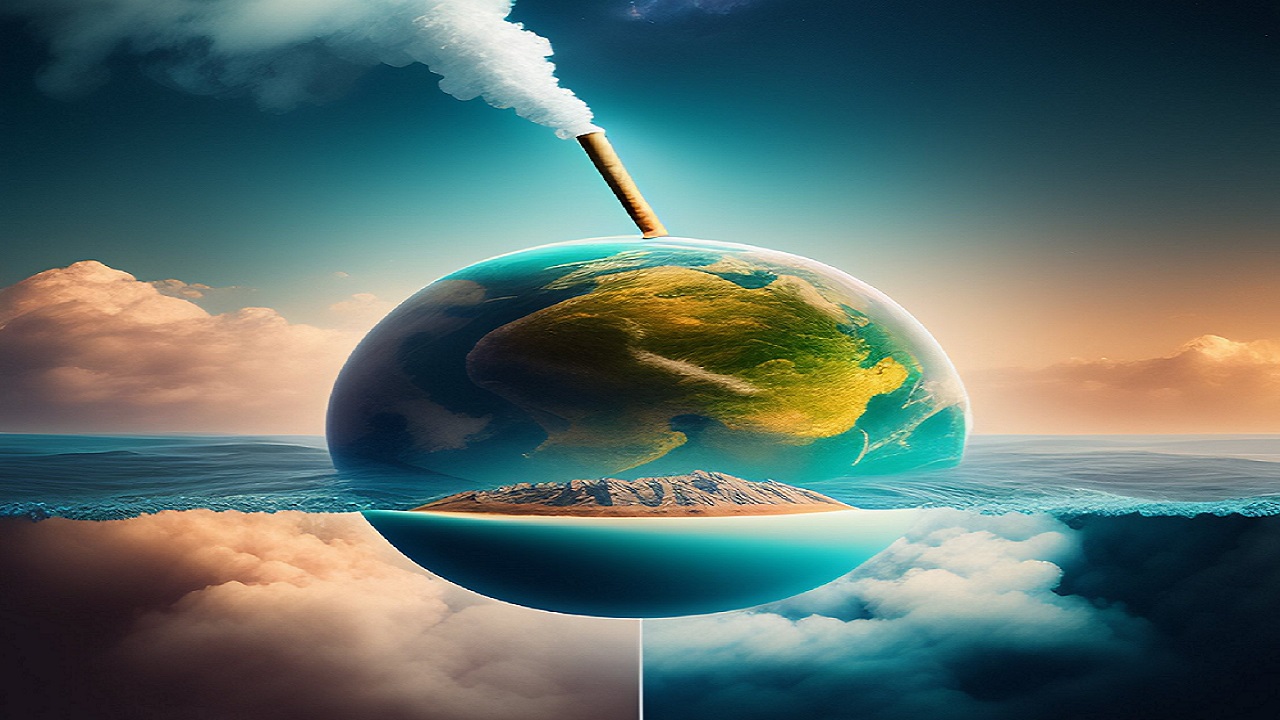The Heat Is On: Understanding the Realities of Global Warming
Global warming is a pressing issue caused by human activity that is leading to severe consequences such as rising temperatures, extreme weather, and rising sea levels. The IPCC has warned of more extreme natural disasters, food and water insecurity, and ecosystem collapse if we do not act urgently to reduce greenhouse gas emissions. There are many solutions to reduce greenhouse gas emissions such as transitioning to renewable energy, reducing meat and dairy consumption, planting more trees, reducing energy consumption, and advocating for change. The author emphasizes the importance of taking collective and urgent action to mitigate the worst impacts of global warming for the benefit of ourselves and future generations.

The Earth's climate is changing, and it's changing fast. The average temperature of the planet has risen by about 1.1 degrees Celsius since pre-industrial times, and it's projected to increase even more in the coming decades. This phenomenon is called global warming, and it's one of the most pressing issues of our time.
The causes of global warming are well-known: human activity is the main culprit. The burning of fossil fuels like coal, oil, and gas releases carbon dioxide (CO2) into the atmosphere, which traps heat and warms the planet. Deforestation, agriculture, and industrial processes also contribute to global warming by releasing other greenhouse gases like methane and nitrous oxide.
The effects of global warming are widespread and severe. Rising temperatures lead to more frequent and intense heat waves, droughts, and wildfires. Melting glaciers and ice caps cause sea levels to rise, which puts coastal cities at risk of flooding. Changes in rainfall patterns can cause crop failures, famine, and displacement of people. Warmer oceans and acidification threaten marine life, fisheries, and tourism.
The Intergovernmental Panel on Climate Change (IPCC), a UN body of scientists from around the world, has been studying the issue of global warming for decades. Their reports paint a grim picture of the future if we don't act now to reduce greenhouse gas emissions. They warn of a world with more extreme weather, more frequent natural disasters, and more food and water insecurity. They also predict that some species will go extinct, and entire ecosystems will collapse.
But it's not all doom and gloom. There are many things we can do to slow down global warming and reduce its impacts. The most important thing is to reduce our greenhouse gas emissions. This means transitioning away from fossil fuels to renewable energy sources like wind and solar power. It also means reducing our consumption of meat and dairy, which are responsible for a large proportion of methane emissions.
Another important step is to plant more trees and protect existing forests. Trees absorb CO2 from the atmosphere and store it in their biomass, making them a valuable tool in the fight against global warming. Additionally, protecting forests and other natural habitats helps to preserve biodiversity and provide important ecosystem services like water filtration and soil erosion control.
Individual actions can also make a difference. We can reduce our carbon footprint by driving less, using public transport, biking, or walking. We can reduce our energy consumption by turning off lights and appliances when we're not using them, using energy-efficient appliances, and insulating our homes. We can also reduce waste by recycling, composting, and buying products with minimal packaging.
Finally, we can advocate for change. We can vote for politicians who prioritize climate action and support policies that promote renewable energy, energy efficiency, and conservation. We can also support businesses that are committed to reducing their environmental impact and divesting from fossil fuels.
The heat is on, and we must act now to mitigate the worst impacts of global warming. The time for denial and delay is over. We have the knowledge and the tools to make a difference, but we need to act collectively and urgently. The stakes are high, but the rewards are immense: a healthier, more sustainable, and more equitable world for ourselves and future generations.
In conclusion, global warming is a real and pressing issue that requires immediate action from all of us. The consequences of inaction are severe and widespread, affecting not only the environment but also our social and economic systems. However, there are many solutions available to us that can help reduce greenhouse gas emissions and mitigate the worst impacts of global warming. We must take collective and urgent action to make a difference and create a healthier, more sustainable, and more equitable world for ourselves and future generations. It is time to act, and we cannot afford to wait any longer.










